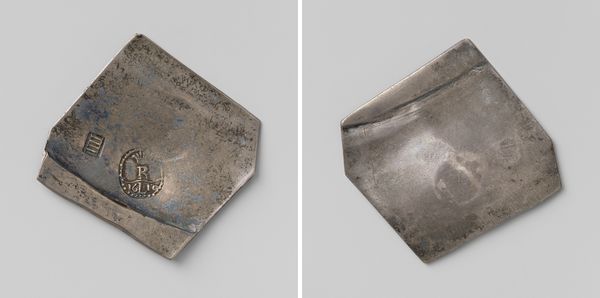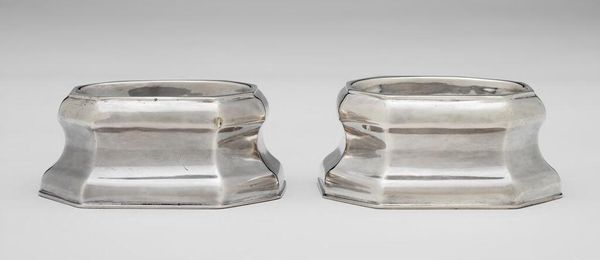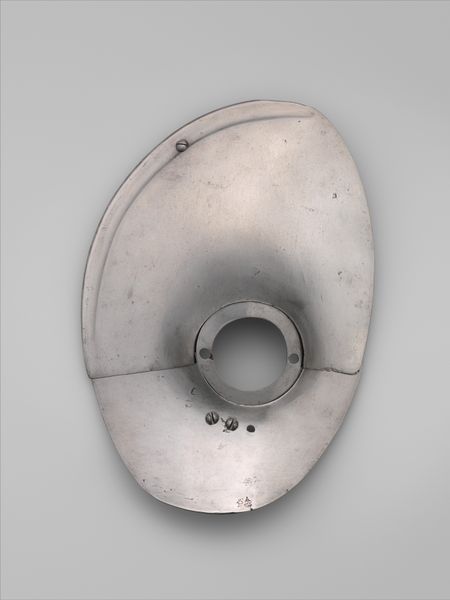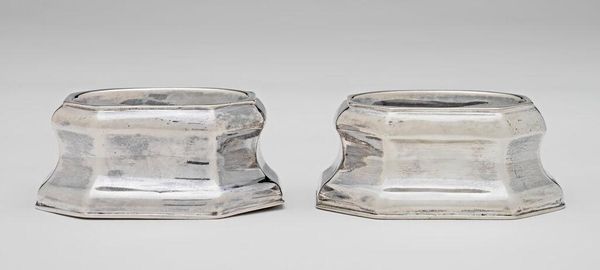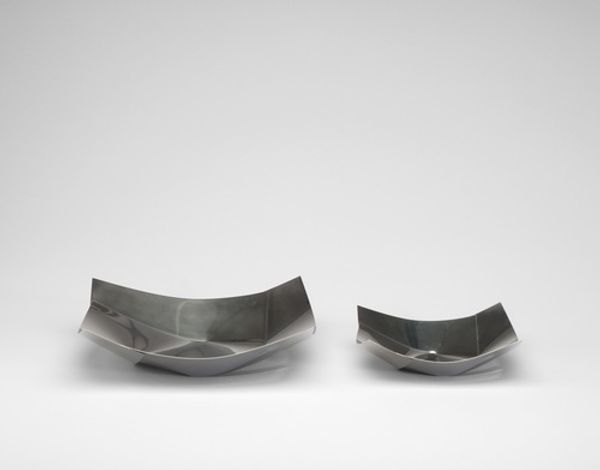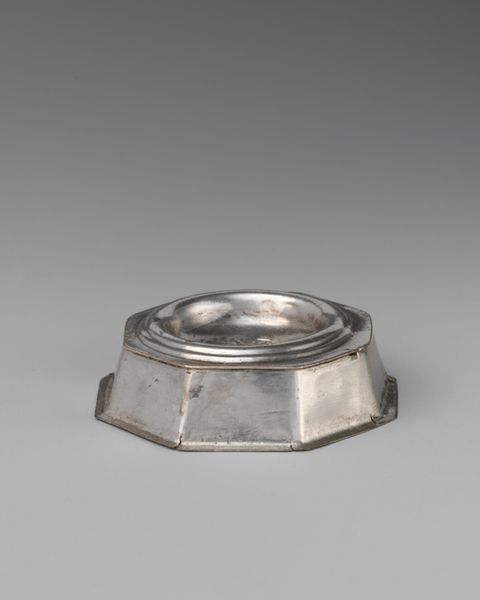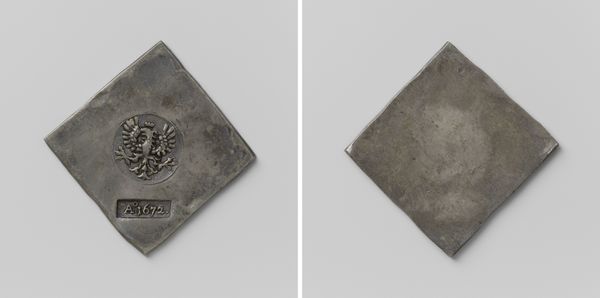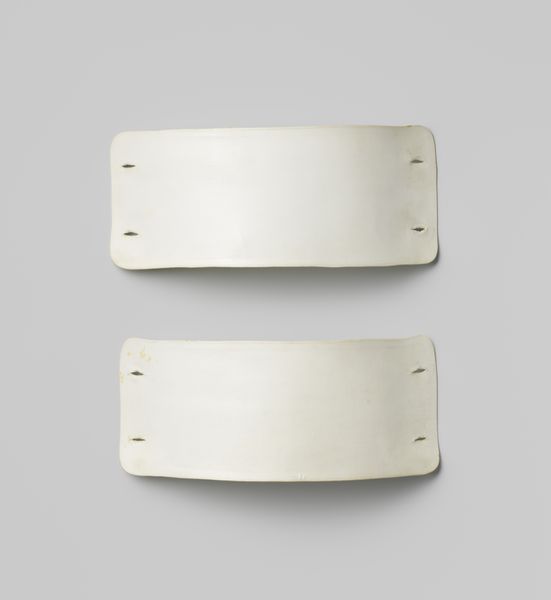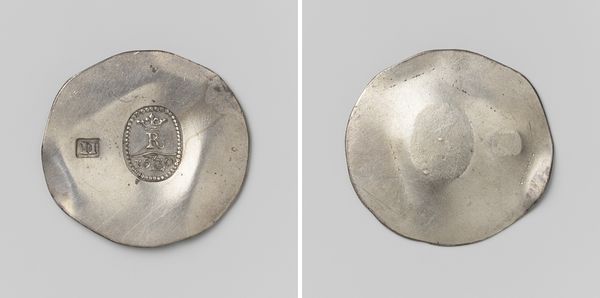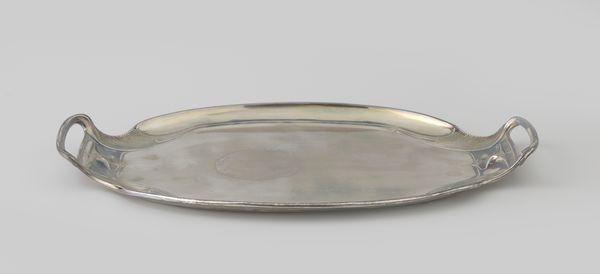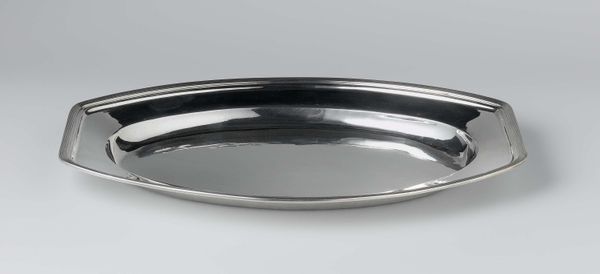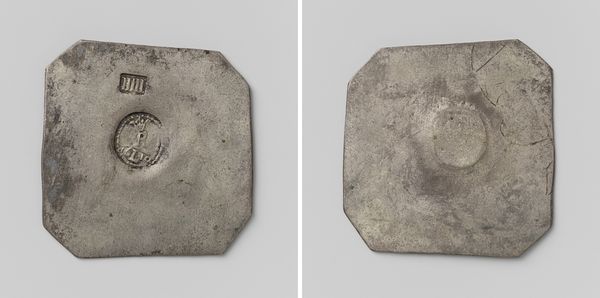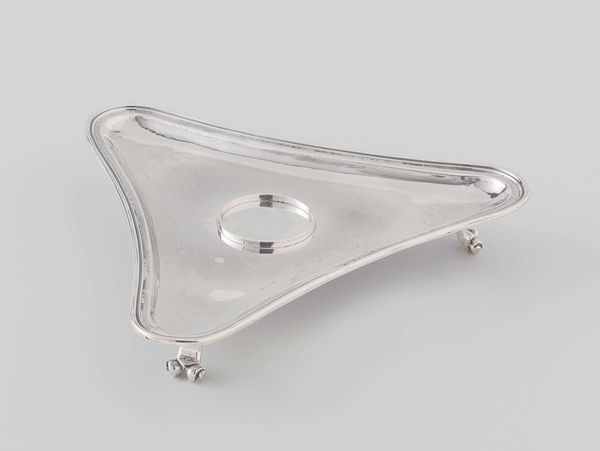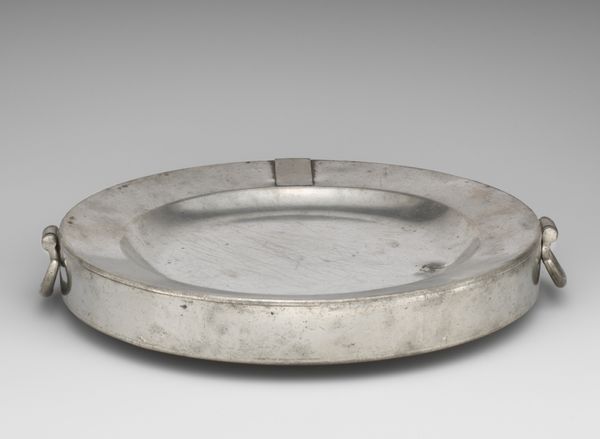
Tien eenheden, noodmunt uit Gulik, geslagen tijdens het beleg door Maurits, prins van Oranje-Nassau, vervaardigd door stuk te knippen uit bord of kom en bestempeld met het monogram van Rudolf II, Duits keizer Possibly 1610 - 1629
0:00
0:00
anonymous
Rijksmuseum
metal, sculpture
#
medieval
#
metal
#
sculpture
Dimensions: height 6.4 cm, width 7.2 cm, width 5.9 cm, weight 48.93 gr
Copyright: Rijks Museum: Open Domain
This unusual object is emergency money from Gulik, made during the siege by Maurits, Prince of Orange-Nassau. It was formed by cutting a piece out of a plate or bowl and stamping it with the monogram of Rudolf II, the German Emperor. The raw materiality speaks of a crisis moment. Silver, usually associated with wealth and status, is here deployed as a last resort. Its inherent qualities of malleability made it suitable for stamping, a relatively quick process considering the circumstances. Yet the crudeness of the cut edges and the irregular shape remind us of the desperation of the moment. The act of repurposing a domestic object into currency highlights the disruption of normal economic activity during the siege. It challenges our notions of value, where an object's worth is not determined by its intended use but by its immediate utility in a time of crisis. This piece of silver, transformed by necessity, asks us to reconsider the relationship between materials, making, and the social contexts that imbue objects with meaning.
Comments
No comments
Be the first to comment and join the conversation on the ultimate creative platform.
